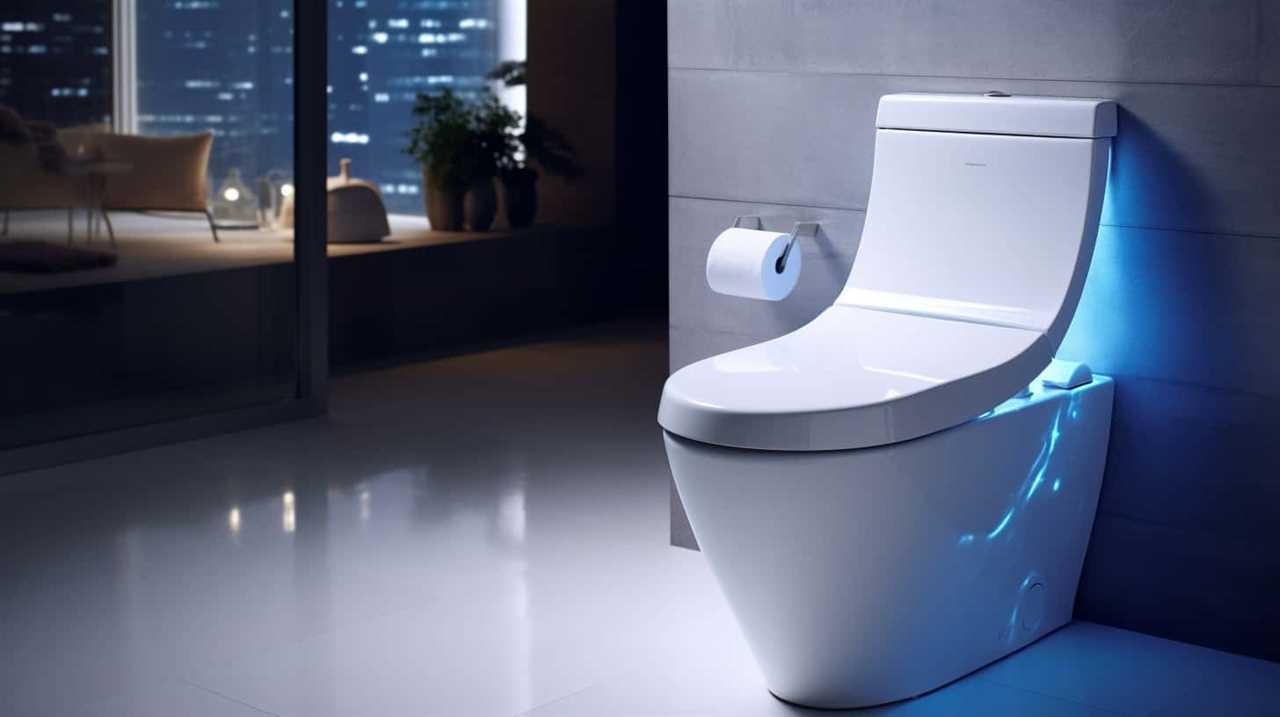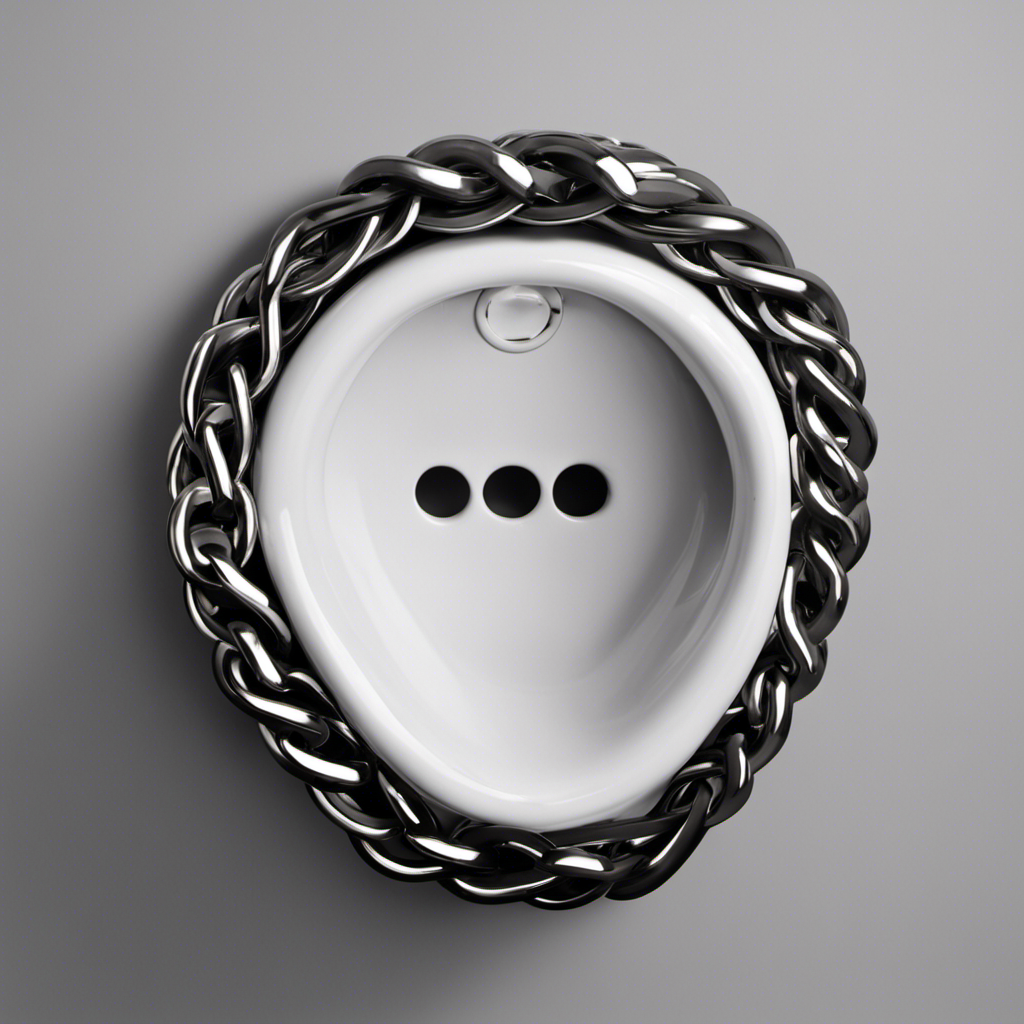Have you ever been curious about the correct method for disposing of toilet paper in Turkey? Allow us to shed some light on the subject! In this article, we’re going to delve into the cultural norms, the state of plumbing infrastructure, and the environmental implications of flushing toilet paper in Turkey.
We’ll also provide alternatives and tips for responsible usage.
So, before you hit the bathroom, join us on this informative journey to discover the dos and don’ts of toilet paper etiquette in Turkey.
Let’s dive in!

Key Takeaways
- Toilet paper availability and usage customs vary across different regions of Turkey.
- In urban areas like Istanbul or Ankara, toilet paper is commonly used and flushed down the toilet.
- In rural or remote parts of Turkey, older plumbing systems cannot handle flushing toilet paper, so it is disposed of in a separate bin.
- Turkey has made improvements in its plumbing infrastructure, with many modern buildings having updated systems that can handle flushing toilet paper.
Cultural Practices Regarding Toilet Paper
In Turkey, our cultural practices dictate whether we can flush toilet paper or not. Toilet paper availability and usage customs vary across different regions of the country.
While in urban areas, such as Istanbul or Ankara, it’s common to have access to toilet paper and to flush it down the toilet, in more rural or remote parts of Turkey, the situation can be quite different. Due to the older plumbing systems in these areas, flushing toilet paper can cause blockages and damage to the pipes. Therefore, it’s customary in these regions to dispose of used toilet paper in a separate bin provided in the bathroom.
This practice may seem unusual to visitors, but it’s an important part of respecting and preserving the local plumbing systems. Now, let’s delve into the details of the plumbing system in Turkey.
Plumbing System in Turkey
The plumbing system in Turkey presents varying challenges and considerations when it comes to flushing toilet paper. In this country, sewage regulations and the state of plumbing infrastructure play a significant role in determining whether toilet paper can be safely flushed or not.

Here are some key points to consider:
- Sewage regulations: In certain areas of Turkey, older plumbing systems may not be equipped to handle the disposal of toilet paper. This is mainly due to narrower pipes that are more prone to clogging. In such cases, it’s advisable to use a trash bin provided in the restroom for disposing of used toilet paper.
- Plumbing infrastructure improvements: Over the years, Turkey has made significant strides in improving its plumbing infrastructure. Many modern buildings and renovated facilities now have updated plumbing systems that can handle flushing toilet paper without any issues. However, it’s still important to be mindful of the specific rules and guidelines in each location.
Considering the challenges and improvements in Turkey’s plumbing system, it becomes crucial to address the environmental concerns associated with flushing toilet paper.
Environmental Concerns With Flushing Toilet Paper
Flushing toilet paper in Turkey raises concerns regarding the environmental impact. While it may be convenient to flush toilet paper, it is important to consider the negative consequences it has on the environment. The production and disposal of toilet paper contribute to deforestation, water pollution, and increased carbon emissions. To address these concerns, it is crucial to explore toilet paper alternatives that are more sustainable. One option is using bidets or bidet attachments, which use water to clean instead of paper. Another alternative is using eco-friendly toilet paper made from recycled materials or bamboo, which have a lower environmental impact. By making small changes in our daily habits, we can help reduce the environmental impact of flushing toilet paper and create a more sustainable future.
| Pros | Cons |
|---|---|
| – Bidets save trees and water | – Initial cost of installing a bidet |
| – Eco-friendly toilet paper reduces deforestation | – Limited availability of eco-friendly options |
| – Bamboo toilet paper is biodegradable | – Higher price compared to conventional toilet paper |
| – Reduced carbon emissions from production | – Limited consumer awareness about alternatives |
| – Less water pollution from paper waste | – Resistance to change traditional habits |
Alternatives to Flushing Toilet Paper
Let’s explore some alternatives to flushing toilet paper in Turkey that can help mitigate environmental concerns. When it comes to cultural taboos and sustainability, there are a couple of options worth considering:
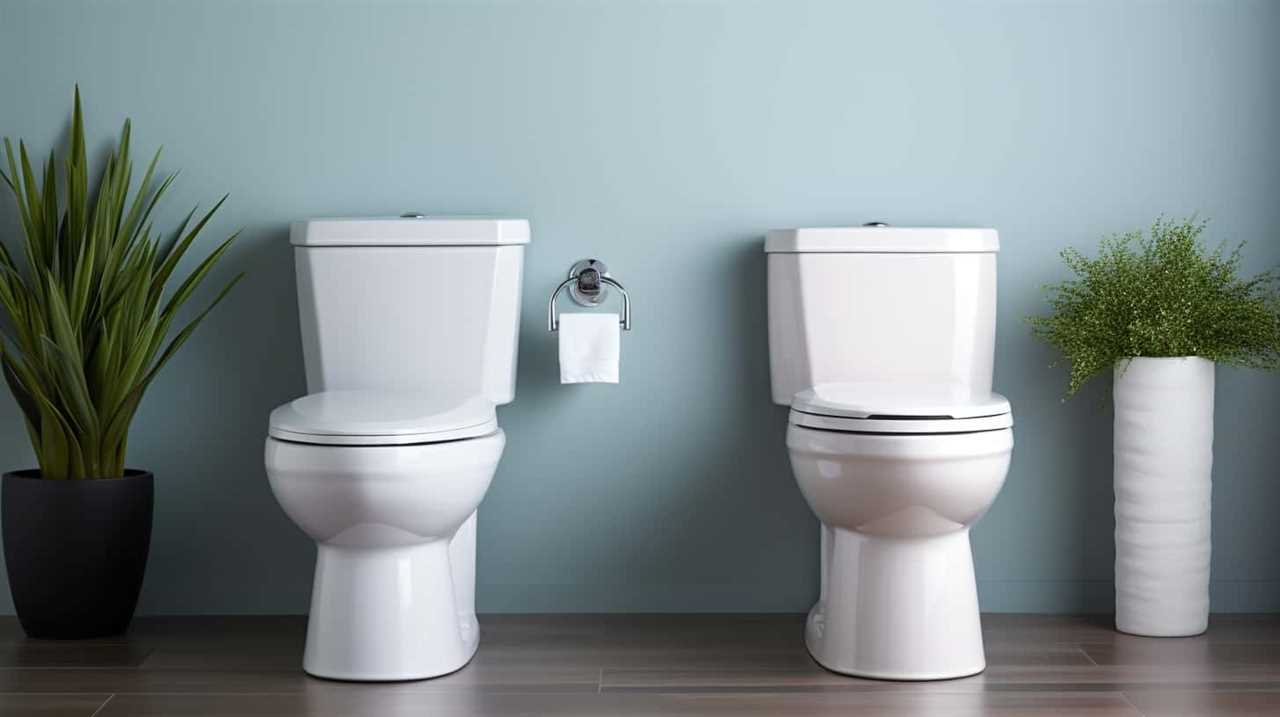
- Bidets: Installing a bidet in your bathroom can significantly reduce the need for toilet paper. Not only does it provide a thorough cleaning, but it also promotes better hygiene.
- Wet Wipes: While they aren’t the most environmentally friendly option, using biodegradable wet wipes can be a suitable alternative to toilet paper. Just make sure to dispose of them properly.
These alternatives offer practical solutions to the issue of flushing toilet paper, taking into account both cultural sensitivities and environmental impact.
However, it’s crucial to understand the sewage system in Turkey to make informed choices. Let’s delve into that next.
Understanding the Sewage System in Turkey
To better understand the sewage system in Turkey, we need to examine how toilet paper disposal is handled.
In Turkey, the sewage infrastructure is designed to handle the disposal of toilet paper. The waste management process includes a network of pipes that transport wastewater and toilet paper from homes and buildings to treatment plants.

These treatment plants are equipped with advanced technologies to filter out solid waste, including toilet paper, from the water.
After the treatment process, the water is purified and released back into the environment.
It’s important to note that the sewage system in Turkey is well-maintained and efficient, ensuring that toilet paper can be safely flushed without causing any blockages or damage.
This demonstrates Turkey’s commitment to providing a reliable and effective waste management system for its citizens.
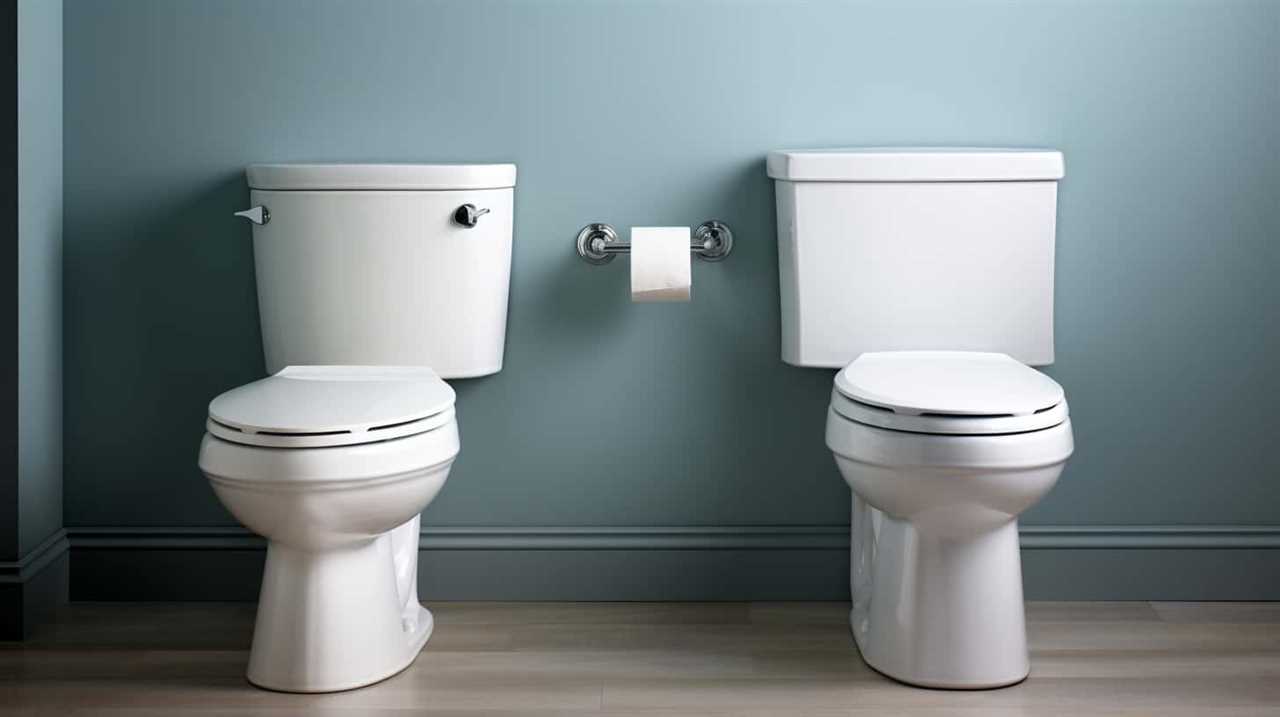
Proper Disposal Methods for Toilet Paper in Turkey
When it comes to disposing of toilet paper in Turkey, we need to be mindful of the proper methods.
In Turkey, cultural taboos and waste management practices dictate that toilet paper shouldn’t be flushed down the toilet. Instead, it should be disposed of in a separate bin provided in the bathroom. This may seem unfamiliar to some, but it’s important to respect and adhere to these cultural norms.
Proper disposal methods for toilet paper in Turkey include:
- Placing used toilet paper in a designated bin: This ensures that the sewage system doesn’t get clogged and prevents potential damage to the plumbing infrastructure.
- Regularly emptying the bin: It’s crucial to empty the bin regularly to maintain cleanliness and hygiene in the bathroom.
Tips for Using Public Restrooms in Turkey
Alright, folks, let’s talk about using public restrooms in Turkey!

When it comes to restroom etiquette, it’s important to know the dos and don’ts.
First off, let’s discuss proper toilet paper disposal.
And of course, we can’t forget about hand hygiene in restrooms.
Restroom Etiquette in Turkey
We have several important tips for using public restrooms in Turkey to ensure a smooth and respectful experience.
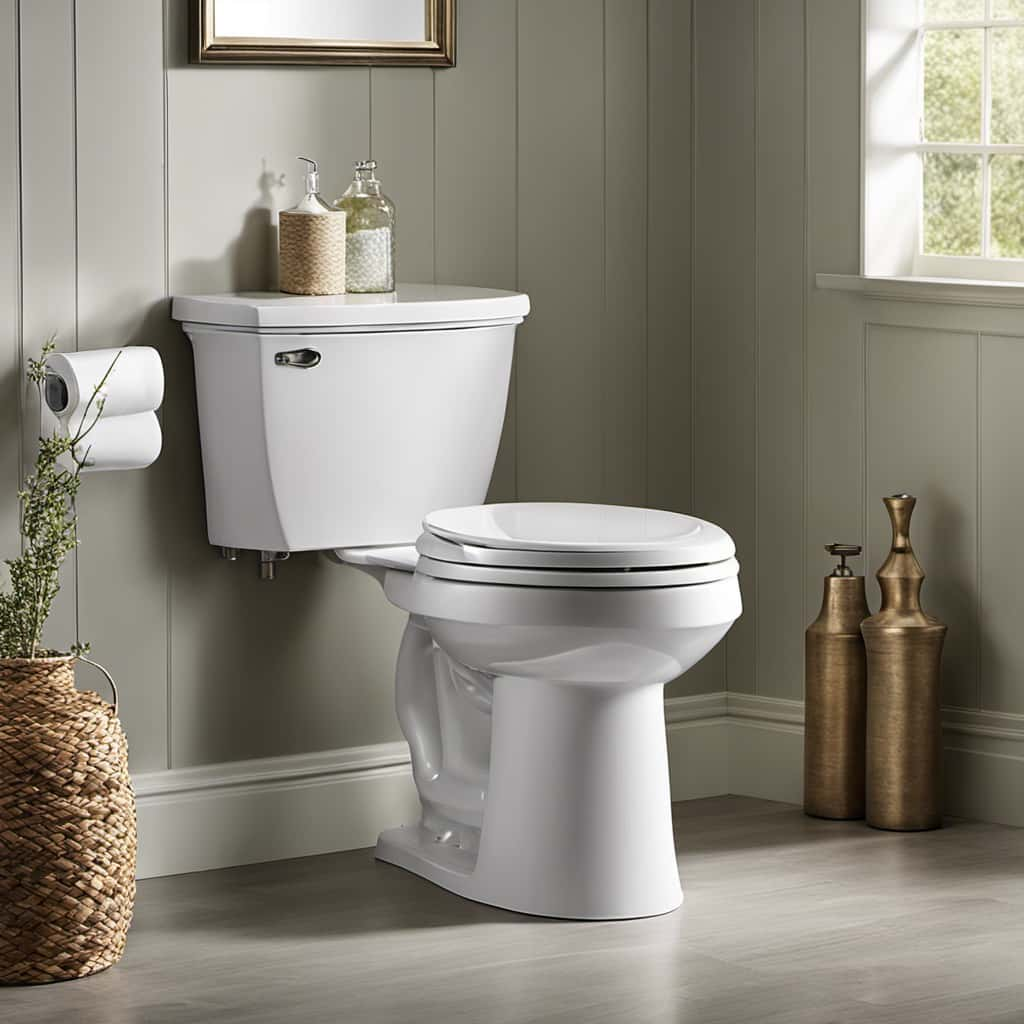
- Always carry your own toilet paper: In Turkey, it’s not uncommon to find public restrooms without toilet paper. To avoid any inconvenience, it’s best to carry your own supply.
- Follow cultural taboos: In Turkish culture, it’s considered rude to talk on the phone or engage in loud conversations while using the restroom. Be mindful of your volume and maintain a respectful atmosphere.
- Practice proper bathroom etiquette: Remember to clean up after yourself, flush the toilet, and wash your hands thoroughly. It’s important to leave the restroom in the same condition you found it, as a sign of respect for the next person.
Toilet Paper Disposal
In our experience using public restrooms in Turkey, we’ve found that it isn’t advisable to flush toilet paper. This is due to cultural taboos and the potential health risks associated with it.
In Turkey, the plumbing systems are often not designed to handle toilet paper disposal in the same way as in other countries. Flushing toilet paper can lead to clogged pipes and costly repairs. Instead, it’s customary to dispose of toilet paper in the provided waste bins next to the toilet.
While this may seem unusual to some, it’s important to respect the local customs and practices. By following this simple rule, you can avoid any potential plumbing issues and ensure a smooth restroom experience.
Now, let’s move on to the next important aspect of restroom etiquette: hand hygiene.

Hand Hygiene in Restrooms
Moving on to proper hand hygiene in Turkish restrooms, it’s essential to follow these tips for a hygienic and healthy experience:
- Respect cultural norms: In Turkey, it’s customary to greet others with a handshake. However, due to the ongoing pandemic, it’s advisable to refrain from physical contact and opt for a polite nod or a friendly smile instead.
- Master handwashing techniques: Ensure you wash your hands thoroughly with soap and water for at least 20 seconds. Pay extra attention to the areas between your fingers and under your nails. If soap and water aren’t available, use an alcohol-based hand sanitizer with at least 60% alcohol content.
Common Misconceptions About Flushing Toilet Paper in Turkey
So, you’ve heard some things about flushing toilet paper in Turkey, huh? Well, let’s clear up some common misconceptions.
First off, toilet paper disposal in Turkey is a bit different than what you might be used to.
Secondly, it’s important to understand the cultural differences that contribute to this practice.
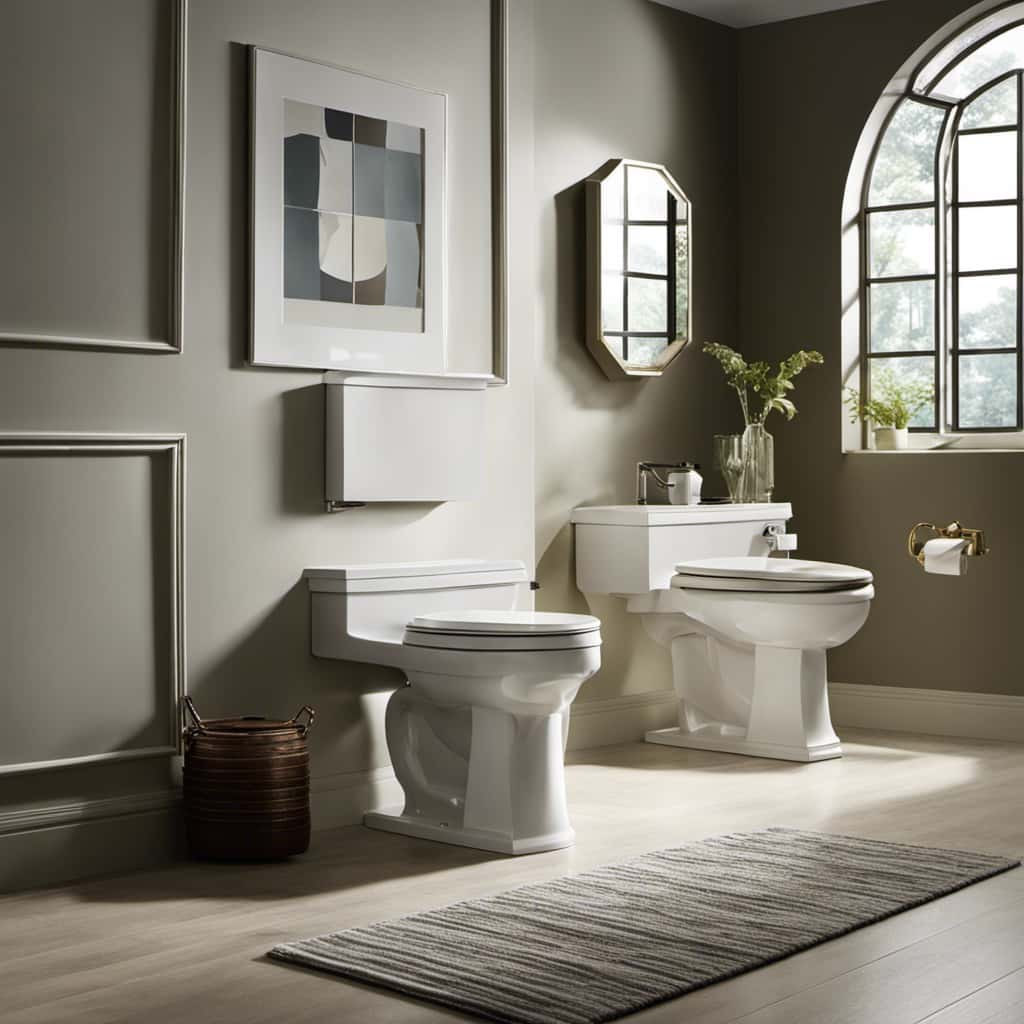
Lastly, we can’t ignore the environmental impact of flushing toilet paper.
Toilet Paper Disposal
We often misunderstand the proper disposal of toilet paper in Turkey. Cultural beliefs and waste management practices play a significant role in determining how toilet paper should be disposed of in this country.
Here are two sub-lists that shed light on the topic and evoke emotions in the audience:
- Cultural Beliefs:
- In Turkey, there’s a prevalent belief that flushing toilet paper can lead to clogged pipes and sewage system issues.
- This belief stems from the fact that the plumbing infrastructure in some areas isn’t designed to handle large amounts of toilet paper.
- Waste Management:
- To address this issue, waste management systems in Turkey often provide covered bins next to toilets for the disposal of used toilet paper.
- These bins are regularly emptied and sanitized to maintain hygiene standards.
Understanding these cultural beliefs and waste management practices is crucial for visitors to Turkey to ensure proper toilet paper disposal and respect local customs.
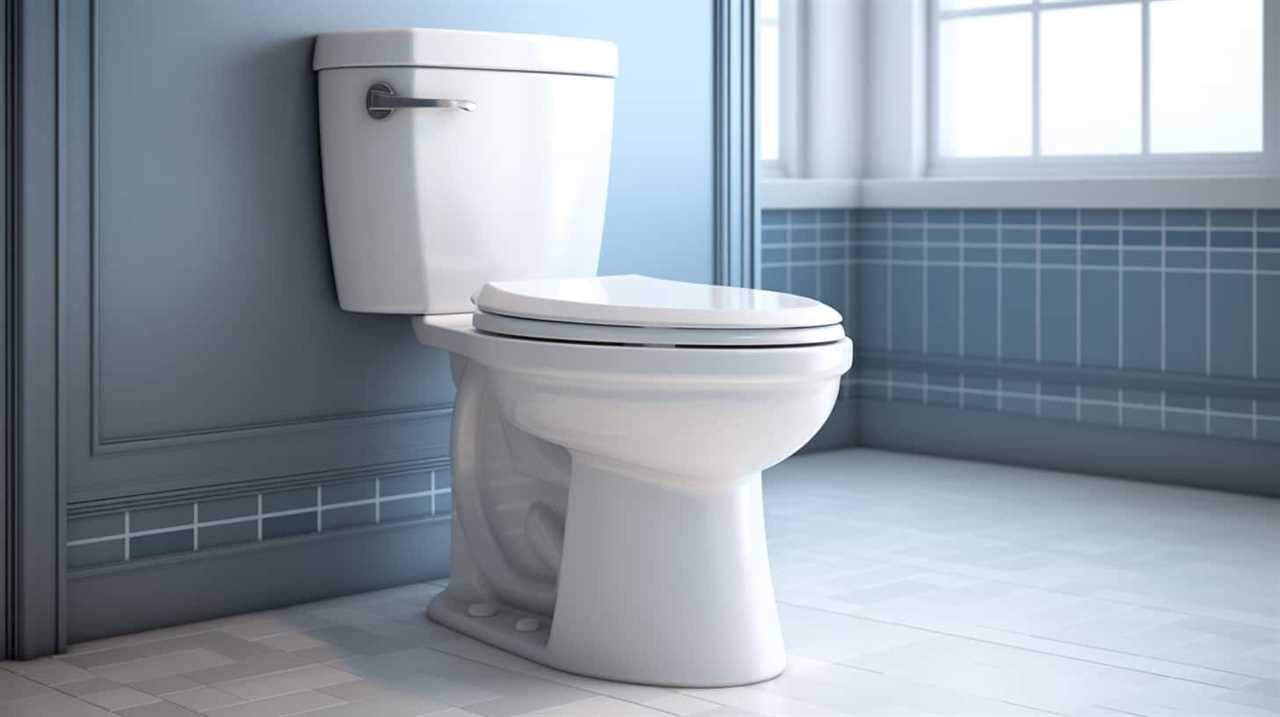
Cultural Differences Explained
One common misconception about flushing toilet paper in Turkey is that it can lead to plumbing issues and sewage system problems. However, the truth is that the cultural taboos and historical practices in Turkey have shaped the way toilet paper is disposed of.
In many parts of Turkey, including Istanbul, the plumbing systems aren’t equipped to handle large amounts of toilet paper. This is due to the fact that older buildings have narrow pipes and outdated sewage systems.
As a result, it’s common for Turkish people to dispose of toilet paper in a bin next to the toilet instead of flushing it down the toilet. This cultural practice may seem unfamiliar to outsiders, but it’s simply a way for Turks to prevent plumbing issues and maintain the functionality of their sewage systems.
Environmental Impact Analysis
Flushing toilet paper in Turkey has been subject to misconceptions regarding its environmental impact. Many people believe that flushing toilet paper in Turkey is harmful to the environment due to the country’s cultural attitudes towards waste disposal. However, this is a common misconception that fails to consider the advancements in wastewater treatment systems in Turkey.
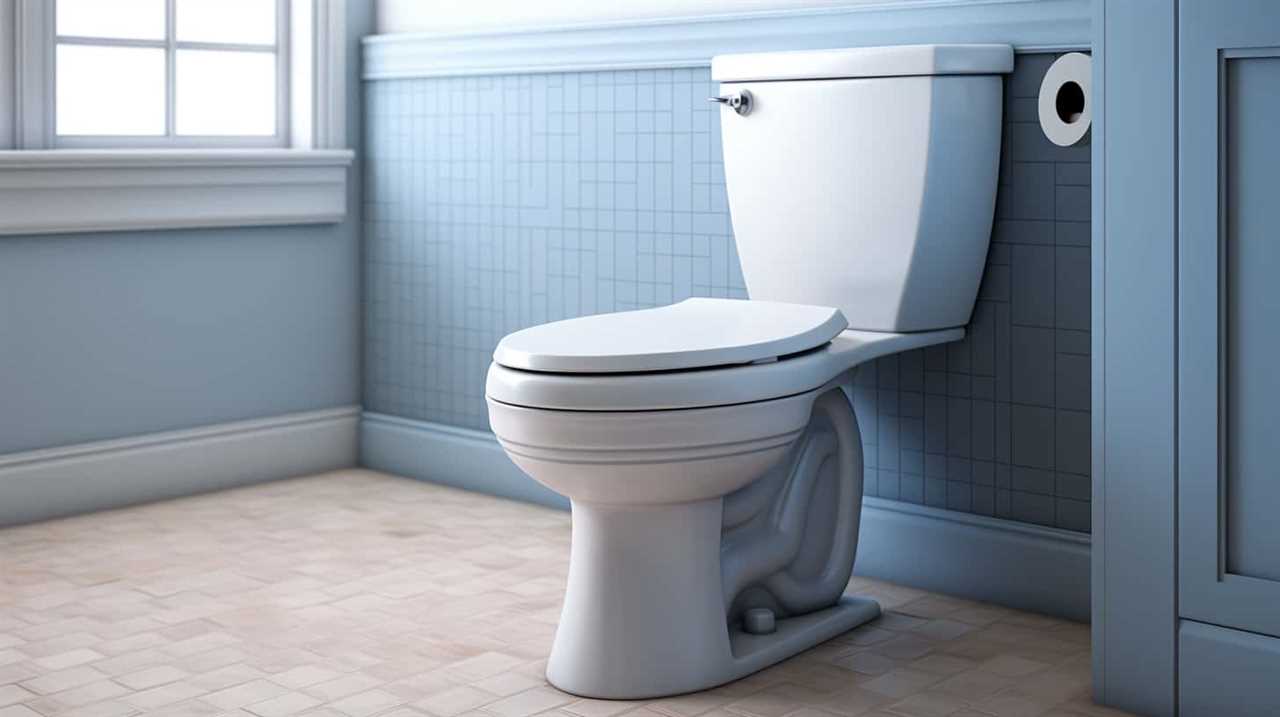
In fact, flushing toilet paper in Turkey has minimal environmental impact, as the country has implemented modern sewage systems that effectively treat and purify the water before it’s released back into the environment. Furthermore, concerns about health implications are also unfounded, as the water treatment processes in Turkey ensure that any potential contaminants are effectively removed.
With these misconceptions cleared, it’s important to delve into the hygiene standards and practices in Turkish bathrooms.
Hygiene Standards and Practices in Turkish Bathrooms
Turkish bathrooms adhere to rigorous hygiene standards and practices, ensuring cleanliness and comfort for all users. Cultural practices in Turkish bathrooms play a significant role in maintaining these high standards.
For instance, it’s customary to remove one’s shoes before entering a bathroom, as a sign of respect and cleanliness. Additionally, understanding the sewage system in Turkey is essential for proper bathroom etiquette.
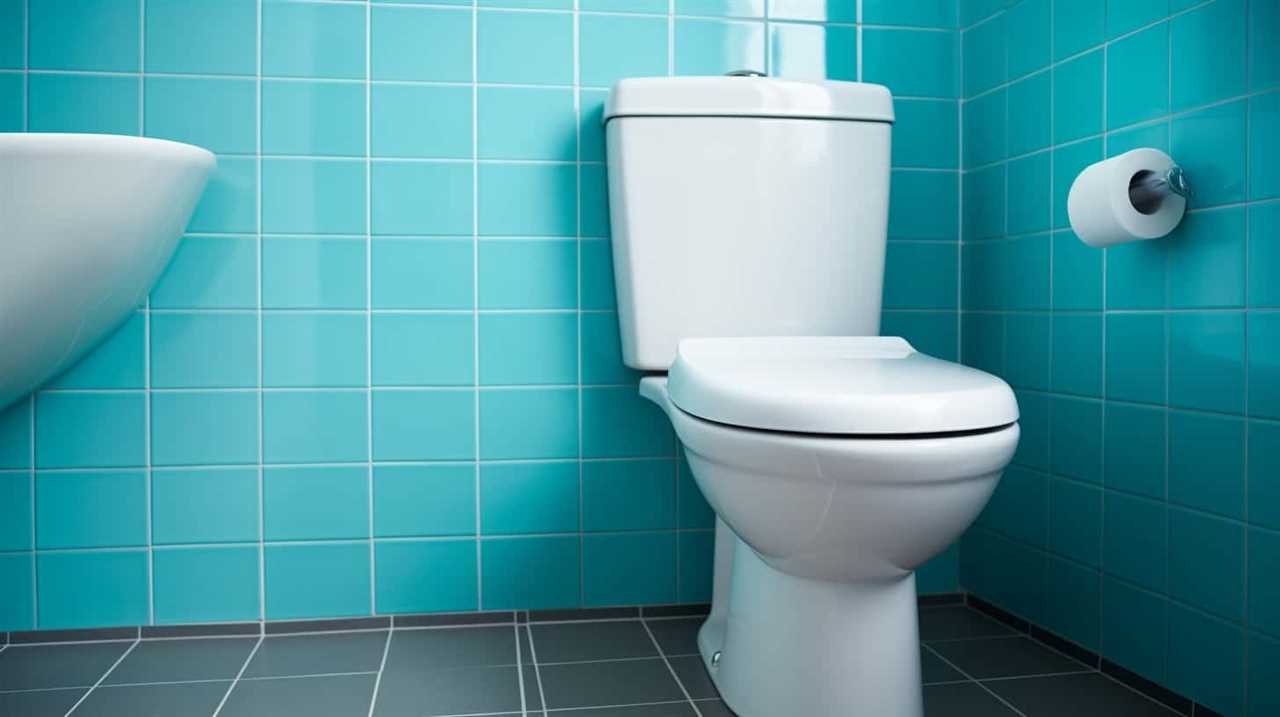
In most parts of the country, the sewage system isn’t designed to handle toilet paper, which is why it’s common practice to dispose of it in a separate bin provided in the bathroom. This practice helps prevent clogs and maintain the functionality of the plumbing system.
Now, let’s delve into the potential consequences of flushing toilet paper in Turkey.
Potential Consequences of Flushing Toilet Paper in Turkey
When it comes to disposing of toilet paper in Turkey, we need to be aware of the potential consequences that can arise. Flushing toilet paper in Turkey can clash with cultural beliefs and result in health risks. Here are the potential consequences to consider:
- Cultural Beliefs:
- Flushing toilet paper may be seen as disrespectful by some locals who adhere to traditional cultural practices.
- It can be viewed as a violation of the sacredness of water, which holds significant importance in Turkish culture.
- Health Risks:
- Flushed toilet paper can clog the plumbing system, leading to costly repairs and inconvenience.
- Inadequate plumbing infrastructure may cause toilet paper to end up in water bodies, polluting the environment and posing health hazards.
Understanding the cultural beliefs and potential health risks associated with flushing toilet paper in Turkey is crucial for maintaining respect and ensuring the well-being of both the local community and the environment.
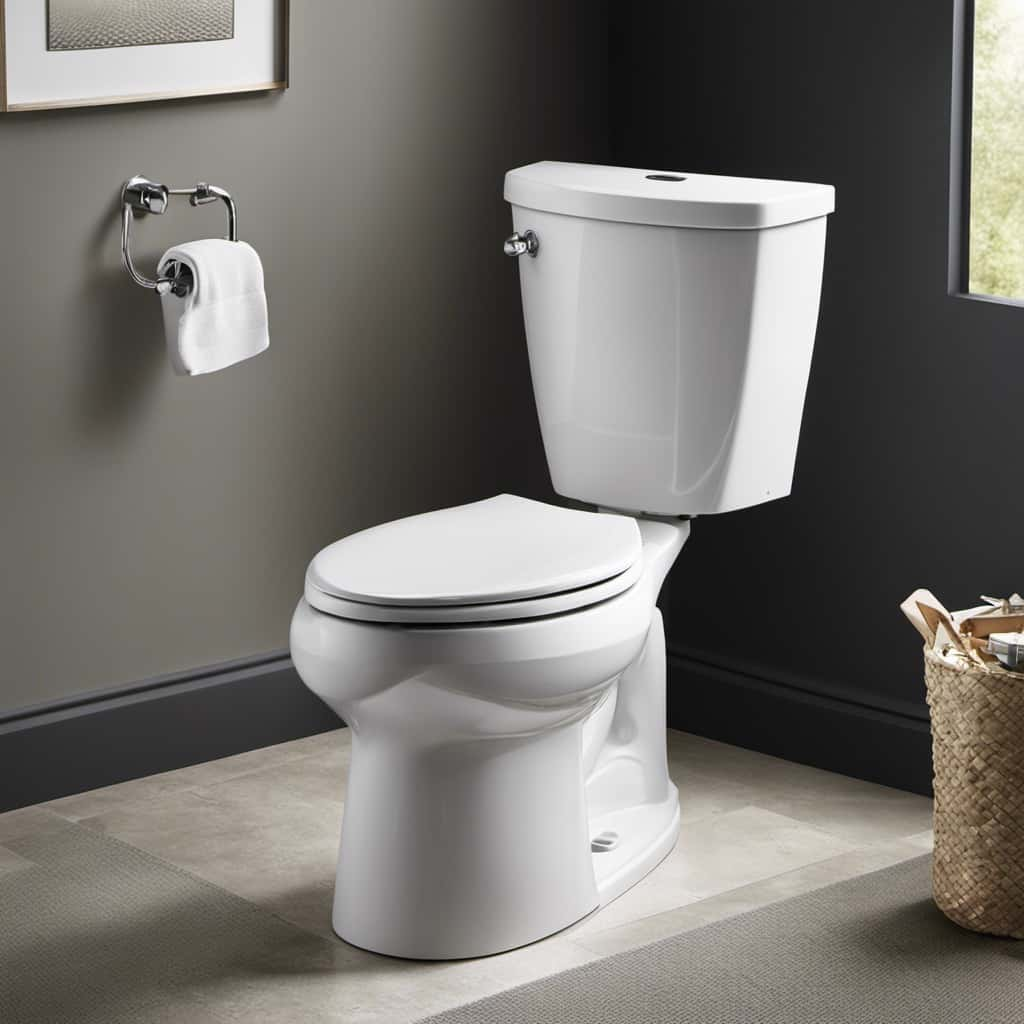
Importance of Respecting Local Customs While Traveling
As travelers, it’s crucial for us to be culturally sensitive and adapt to the local norms of the places we visit. Respecting the customs and traditions of a foreign country not only shows our appreciation for their culture, but also fosters positive interactions with the locals.
Whether it’s understanding how to greet someone, dress appropriately, or even how to dispose of toilet paper, being mindful of these customs helps us navigate unfamiliar territories with grace and respect.
Cultural Sensitivity When Traveling
During our travels in Turkey, we quickly learned the importance of respecting local customs and being culturally sensitive. Being aware of cultural taboos and communication challenges is crucial in order to navigate unfamiliar territories with grace and respect.
Here are two key aspects we encountered:
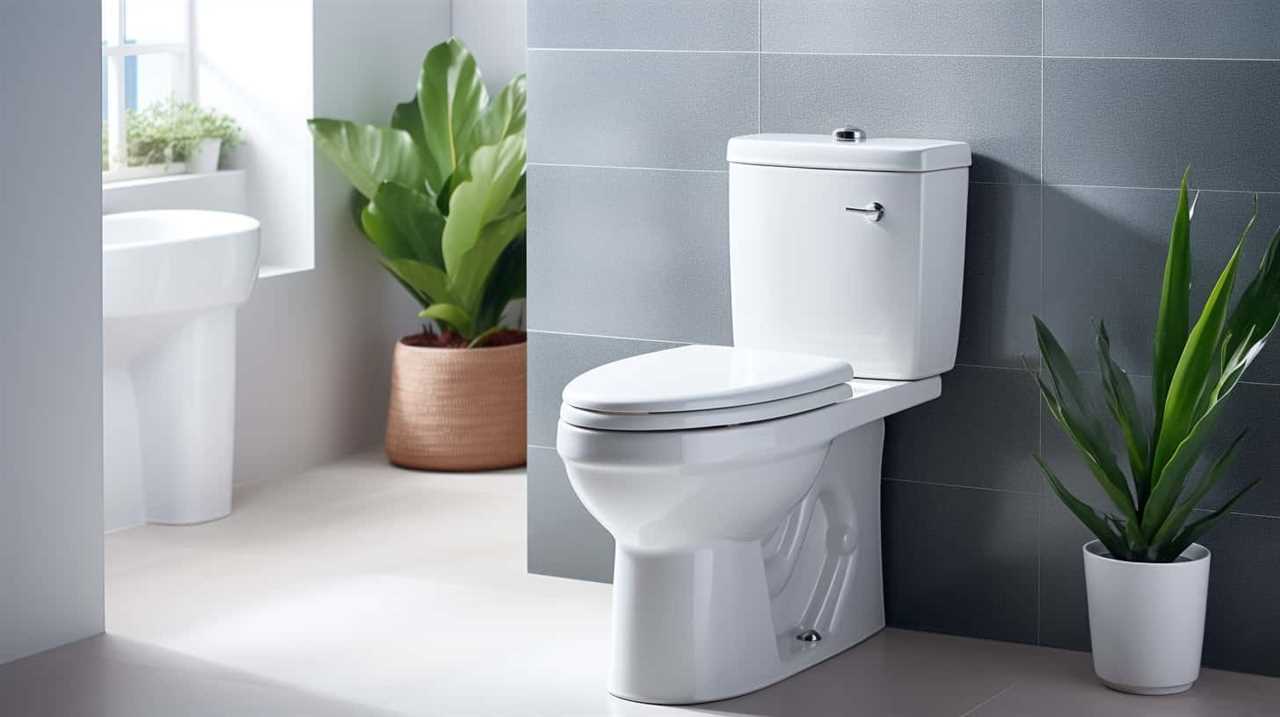
- Language barriers: Communicating effectively can be a challenge when there’s a significant language barrier. However, making an effort to learn basic phrases and using non-verbal communication can bridge the gap and show respect for the local culture.
- Dress code: Different cultures have different expectations when it comes to clothing. By dressing modestly and adhering to local dress codes, we not only show respect, but also avoid unnecessary attention or misunderstandings.
By being culturally sensitive, we can adapt to local norms and foster positive interactions with the locals.
Now, let’s delve into the next section and explore the importance of adapting to local norms.
Adapting to Local Norms
We quickly adapted to local norms in Turkey, embracing and respecting their customs while traveling. Cultural adaptation is essential when visiting a foreign country, and one area where this is particularly important is in understanding and adhering to local bathroom etiquette.
In Turkey, for example, it’s common practice not to flush toilet paper. Instead, there are bins provided next to the toilet for its disposal. At first, this may seem strange or inconvenient, but it’s important to remember that each culture has its own unique customs and practices.
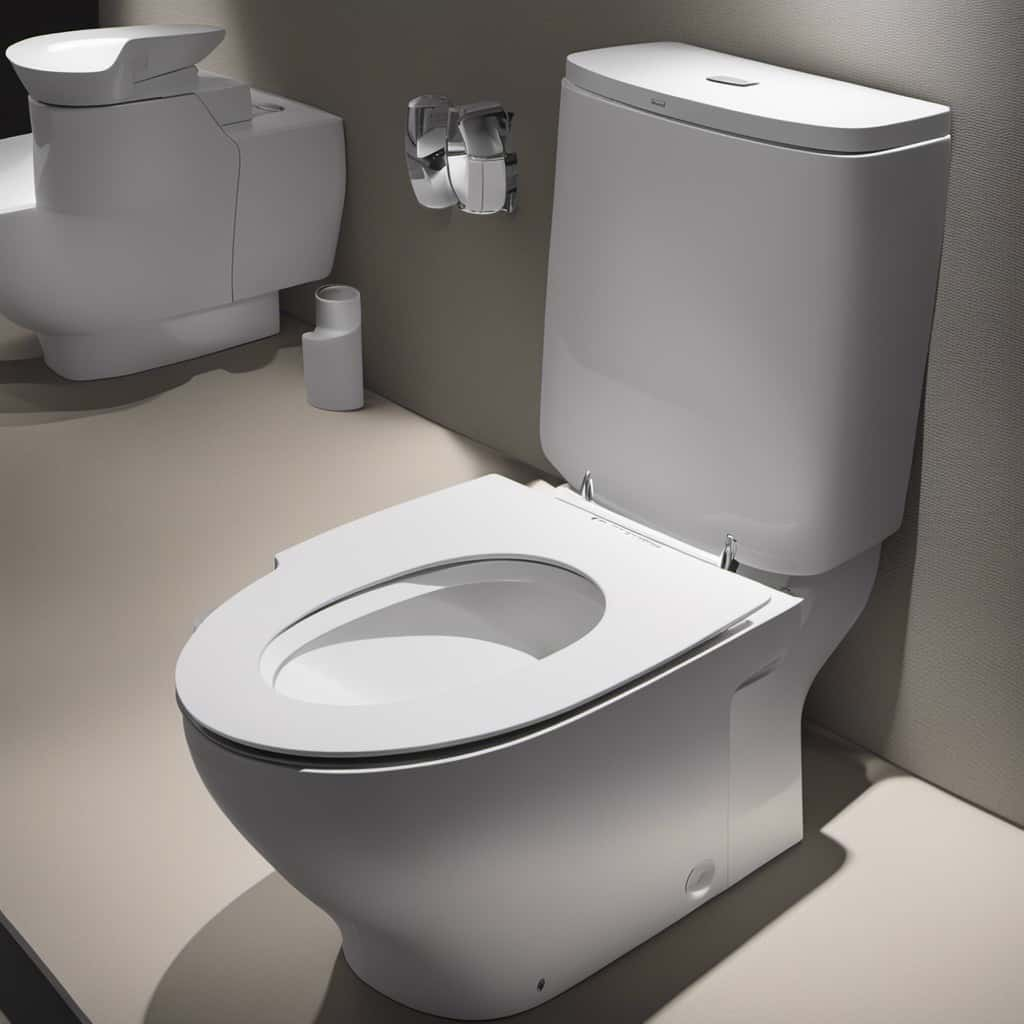
Adapting to these norms not only shows respect for the local culture, but it also helps to preserve the infrastructure and avoid potential plumbing issues. So, when in Turkey, make sure to follow the local bathroom etiquette and dispose of your toilet paper in the designated bins.
Recommendations for Responsible Toilet Paper Usage in Turkey
In Turkey, following responsible toilet paper usage is essential for maintaining proper plumbing systems and preventing clogs. When it comes to sustainable toilet paper options, there are a few recommendations that can help reduce toilet paper waste:
- Opt for recycled toilet paper: Look for brands that use recycled materials in their production. This helps to conserve resources and reduce the demand for virgin pulp.
- Choose unbleached toilet paper: Bleaching agents used in the production of toilet paper can be harmful to the environment. By selecting unbleached options, you can minimize the use of these chemicals.
- Use only what’s necessary: Be mindful of how much toilet paper you use. Use only the amount needed to get the job done, and avoid excessive wastage.
Conclusion
So, when it comes to flushing toilet paper in Turkey, it’s important to be aware of the cultural practices and plumbing system. While it may be tempting to flush toilet paper like we do in some other countries, it’s best to follow the local customs and use alternatives like bidets or trash bins.
Not only does this help prevent potential environmental issues, but it also shows respect for the hygiene standards and practices in Turkish bathrooms. Remember, when in Turkey, it’s all about embracing the ‘go with the flow’ mentality.
